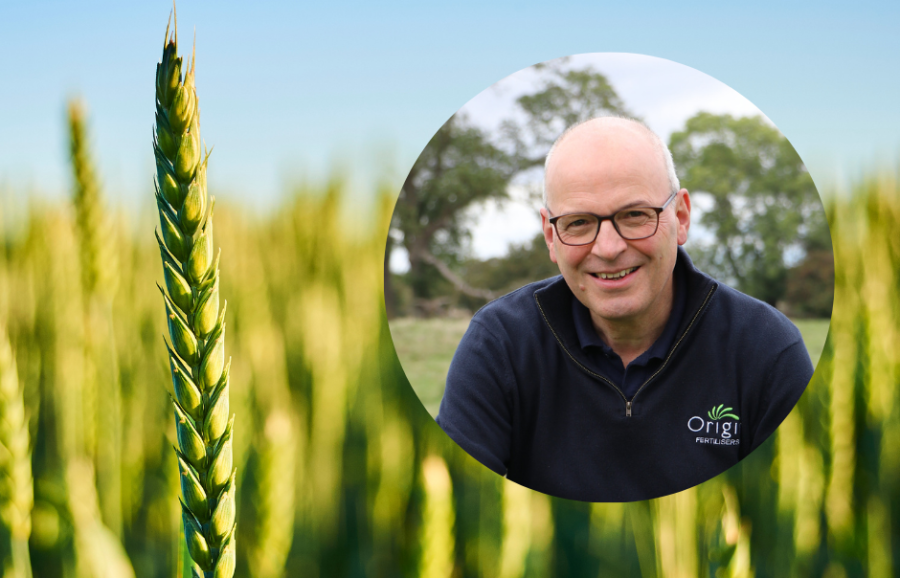For Peter Scott, technical director of Origin Fertilisers, the future of crop nutrition lies in finding a balance beyond nitrogen reliance.
“Yes nitrogen is a primary driver in food production, but it’s a leaky system in terms of the environment – it’s at the pivot of the sustainability seesaw.
“And although NUE is a useful KPI, we have to know what it is before we strive to improve it, by measuring and benchmarking to understand seasonal and crop variation. That’ll take at least 2-3 years at scale and only then can we consider mitigation actions,” he says.
Simple solutions
Peter adds that such actions don’t necessarily have to be high tech or obscure, in fact, they could be as simple as correcting pH or a micronutrient deficiency. “It’s understanding the synergies working for and against NUE to identify the limiting factors.”
He believes a current over-simplification by some retailers and food processors is a concern. “Nutrition is a complex series of processes beyond just aiming to reduce nitrogen use in production. A more sophisticated solution would be to reduce nitrogen ‘leakage’ instead and reward it.”
Secondary and micronutrients
Peter also sees gains to be had from a better approach to secondary and micronutrients, including a more integrated approach. “To unlock the correct balance to crop nutrition, we have to think beyond nitrogen and be more prescriptive. We could achieve this through broad-spectrum soil testing as well as plant tissue testing and then analysing the nutrient content of the harvested crop.
“This tells us what should happen, what is happening and then what did actually happen. By identifying and addressing the limiting factors, the result will be better quality crops which are more nutrient-dense,” he explains.
Knowledge gap
According to Peter, there’s also a lack of knowledge regarding the physical properties of crops, whereas chemical and biological aspects are relatively well understood. “This could mean greater analysis post-harvest to enhance knowledge and address how to identify any weak points.”
Ultimately, Peter hopes future disruptive thinking will change the nutrition market for the good. “At the heart of this is communication to effectively filter new innovative approaches down to farm level.
“And don’t be afraid to make mistakes,” he concludes.
This article stems from CPM’s Arable Farming 2050 feature, which was written to celebrate the magazine’s 25th anniversary.




